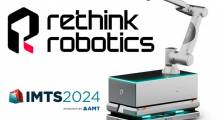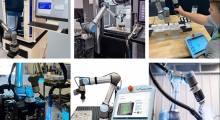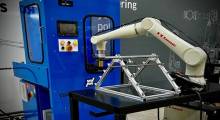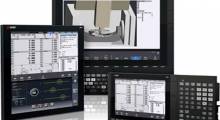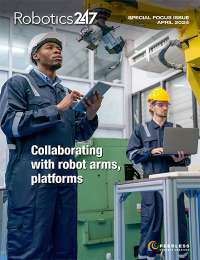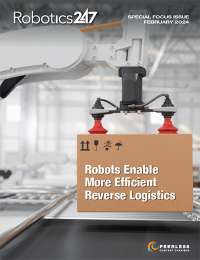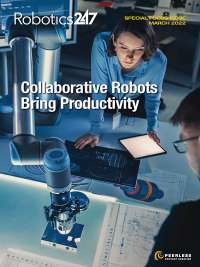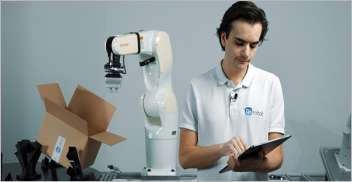PBC Linear last week announced that Universal Robots A/S has granted UR+ partner certification to its Applied Cobotics Cobot Feeder, an application kit that delivers and stages parts to be placed into a CNC machining process.
“Machine tending is a critical process in manufacturing and one of the most popular applications for UR cobots,” said Joe Campbell, senior manager of applications development at collaborative robotics leader Universal Robots, in a press release.
“By constantly feeding the cobot new parts to accurately pick and place, Applied Cobotics optimizes this process significantly,” he added. “We’re excited to include the Cobot Feeder in the UR+ product portfolio, benefitting our rapidly growing customer base looking to automate this task.”
PBC Linear has been a proud member of the manufacturing community in Rockford, Ill., since 1983. The Roscoe, Ill.-based Pacific Bearing company has created patented systems and claimed that it has expanded its technology, expertise, and services “to become a complete linear motion manufacturer.”
Through its partnerships in Europe and Asia and its worldwide network of distributors, PBC Linear has positioned itself as a trusted global leader in bearing products and linear motion technology.
Applied Cobotics Cobot Feeder puts products in reach
PBC Linear’s Applied Cobotics Cobot Feeder includes a base storage and retrieval unit with a UR pedestal, an enclosed steel rack dunnage tower with a 17-tray capacity that safely stores up to 50 lb. of material, and a touchscreen display for easy lift control. It also includes Ethernet IP, Modbus, and standard UR cobot communications.
Designed to address material handling and labor shortage issues, the Cobot Feeder can boost UR robot arm production without significant increases in labor, said PBC Linear. The company asserted that its system can help manufacturers achieve a higher return on their investment (ROI), with paybacks in as little as two months with the Cobot Feeder and UR cobot operating 24/7.
The Cobot Feeder can reliably load and unload dunnage trays into positions that a UR robot can consistently reach, noted PBC Linear. As a result, the CNC machine-tending tool provides a standardized platform for storing, staging, and delivering parts, it said.
Using sample parts or CAD files, the PBC Linear Applied Cobotics team can provide flexible, cost-effective, custom-molded, or machined nests in as little as a day. This allows manufacturers to tailor dunnage trays to meet specific application requirements and quickly accommodate new product introductions, said PBC Linear.
PBC Linear part of UR+ program
The UR+ platform is a comprehensive ecosystem of certified partner products designed to integrate with Universal Robots' products. PBC Linear said that operating a Cobot Feeder alongside a UR cobot offers several benefits to shop floors:
- Higher efficiency: The system is designed to reduce changeovers and robot downtime, leading to increased cobot output.
- Increased productivity: It can provide a significant boost in production, up to 16 times more than single-tray applications.
- Cost containment: The Applied Cobotics Cobot Feeder promises to mitigate the impact of rising labor costs. One operator can oversee multiple stations, allowing them to focus on production flow and quality control.
- Greater flexibility: The feeder can enable shop floors to adapt to dynamic markets with multiple parts runs, lights-out automation, and shorter lead times.
- Recruitment and retention: The Cobot Feeder helps create a more engaging, more fulfilling, and safer work environment, making the workplace more appealing to young recruits and helping to retain experienced workers who seek skill development and an improved workplace atmosphere.
- Higher ROI: Recovering the cost of the Cobot Feeder, the UR robot, and accessories can occur in about six months running a single eight-hour shift or in as little as two months when operating 24/7. PBC Linear offers an online Applied Cobotics ROI Calculator.
Founded in 2005, Universal Robots claimed that it introduced “the world's first commercially viable cobot” in 2008. The Odense, Denmark-based company has developed a product portfolio with a range of reaches and payloads for education and multiple industries.
Universal Robots said it has sold more than 50,000 collaborative robots worldwide. It has also built an extensive ecosystem around its technology, with options of components, kits, and solutions for multiple applications.
Article topics
Email Sign Up





